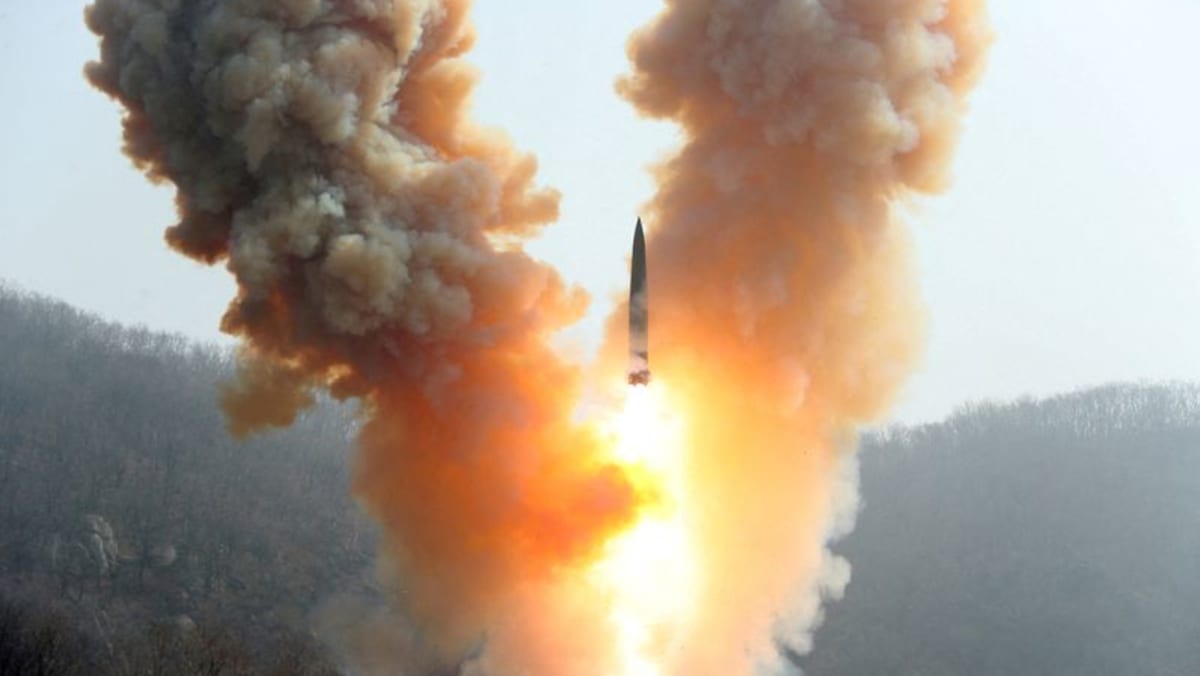
TOKYO: The Japanese government lifted an evacuation order for residents of the northern island of Hokkaido, saying the country’s J-Alert emergency warning system had made an erroneous prediction a missile would fall near the island.
Japan’s government urged Hokkaido residents to take shelter on Thursday morning (Apr 13) after North Korea fired a ballistic missile of intermediate range or longer, but local officials later said the missile would not land near Japan’s northern region.
“Evacuate immediately. Evacuate immediately,” the government had said in an initial warning, telling residents of Hokkaido to take shelter in a building or underground.
The warning had said the missile was expected to land around 8am local time (7am, Singapore time).
But not long after, Asahikawa city in Hokkaido tweeted that there was no longer any concern of danger.
“After we confirmed the information, there is no possibility that the missile will fall on Hokkaido or areas around the region,” the account said, citing the national government’s emergency network.
Prime Minister Fumio Kishida of Japan said his government would hold a National Security Council meeting on the launch.
Japan’s defence minister, Yasukazu Hamada, said the missile appeared to have been fired eastward at a high angle. He said the missile did not fall in Japanese territory, and that the defence ministry was analysing the launch for more details.
The defence minister added that he could not confirm whether the missile flew over Japan’s exclusive economic zone.
Japan’s coast guard said the projectile had fallen in the sea to the east of North Korea.
There have been problems with J-Alert before.
In October, an evacuation warning was issued when a missile overflew Japan but it came so late most people were not aware of it until the projectile had fallen into the Pacific.
A month later, a warning was erroneously issued saying a missile had overflown Japan.
On Thursday, a student told Japanese broadcaster NHK that the alert caused a momentary alarm at a train station in Hokkaido.
“For a second in the train there was panic, but a station worker said to calm down, and people did,” said the man, whom NHK did not name.
SOUTH KOREA ON HIGH ALERT
The missile flew about 1,000km, South Korea’s military said, calling it a “grave provocation”. The apogee, or maximum altitude of the missile, has not been disclosed.
The missile was fired at 7.23am (6.23am, Singapore time) from near Pyongyang, South Korea’s Joint Chiefs of Staff said.
The South Korean military said it was on high alert and maintaining readiness posture in close coordination with the US.
The launch comes two days after North Korean state media KCNA reported that leader Kim Jong Un called for strengthening the country’s war deterrence in a “more practical and offensive” manner to counter what it called moves of aggression by the United States.
North Korea has criticised the recent series of joint military exercises between the US and South Korea as escalating tensions, stepping up its weapons tests in recent months.
